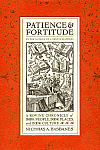|
 |
| Home |
Search |
Events |
Quality Bargains |
Scholarly Section |
Remainders Section |
About Us & Contact |
|
Friday Forum: Gregory Nagy, November 22Friday, 2pm Plato's Rhapsody and Homer's Music: The Poetics of the Panathenic Festival in Classical Athens Harvard University Press The festival of the Panathenaia, held in Athens every summer to celebrate the birthday of the city's goddess, Athena, was the setting for performances of the Homeric Iliad and Odyssey by professional reciters or "rhapsodes." The works of Plato are our main surviving source of information about these performances. Through his references, a crucial phase in the history of the Homeric tradition can be reconstructed. Through Plato's eyes, the "staging" of Homer in classical Athens can once again become a virtual reality. This book examines the overall testimony of Plato as an expert about the cultural legacy of these Homeric performances. Plato's fine ear for language--in this case the technical language of high-class artisans like rhapsodes--picks up on a variety of authentic expressions that echo the talk of rhapsodes as they once practiced their art. Highlighted among the works of Plato are the Ion, the Timaeus, and the Critias. Some experts who study the Timaeus have suggested that Plato must have intended this masterpiece, described by his characters as a humnos, to be a tribute to Athena. The metaphor of weaving, implicit in humnos and explicit in the peplos or robe that was offered to the goddess at the Panathenaia, applies also to Homeric poetry: it too was pictured as a humnos, destined for eternal re-weaving on the festive occasion of Athena's eternally self-renewing birthday. About the Author Gregory Nagy served as the elected President of the American Philological Association in the academic year 1990-91. His special research interests are archaic Greek literature and oral poetics, and he finds it rewarding to integrate these interests with teaching, especially in his course for Harvard's Core Curriculum, "The Concept of the Hero in Greek Civilization." He was Chair of Harvard's undergraduate Literature Concentration from 1989 to 1994. From 1994 to 2000, he served as Chair of the Classics Department. Since 2000, he has been the Director of the Harvard Center for Hellenic Studies in Washington DC, while continuing to teach half-time at the Harvard campus in Cambridge as the Francis Jones Professor of Classical Greek Literature and Professor of Comparative Literature. |
||||||||||
Home | Search | Scholarly | Bargains | Events | About Us | Contact
Copyright 2004 Harvard Book Store
Phone: 800-542-READ FAX: 617-497-1158


